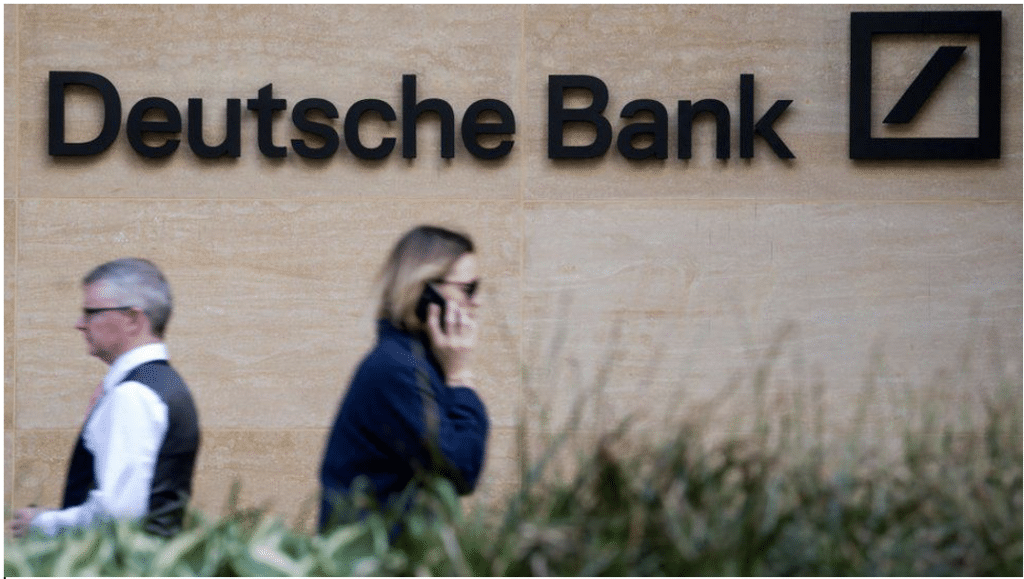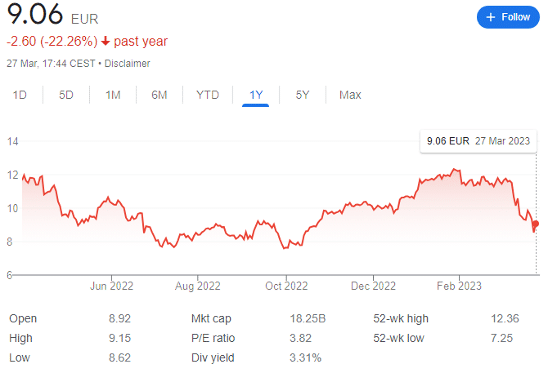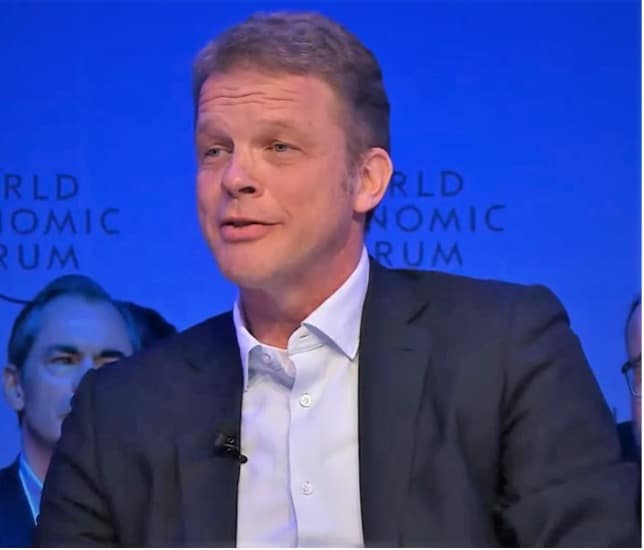As Silicon Valley Bank and Credit Suisse fall, investors are casting doubtful eyes at another bank which has traditionally stood on shaky ground.

Deutsche Bank shares climbed out of their hole of 2022, rising to €12.34 on 27 January 2023. By 9 March, they had dipped to €11.51 — before sinking to €8.54 on 24 March and then recovering to €9.06 today.
That’s still billions down.

Like Credit Suisse, Deutsche Bank is a ‘systemically important financial institution.’ Unlike Credit Suisse, the bank appears well-capitalised and relatively profitable. But fear is now in the markets, and DB could fall victim to a variety of diseases; investor panic fuelled by social media frenzy, a blindside cannon, or even an as-yet unknown variable. For context, the collapse of Silicon Valley Bank came out of nowhere — a result of managerial incompetence and bad timing. And try as Deutsche Bank might, it’s the new target.
Deutsche Bank explained
Deutsche Bank is Germany’s largest lender, holding total assets of over €1.3 trillion at the end of 2022. It employs 85,000 staff across 58 countries and is headquartered in the largest economy in the European Union. Unlike many outfits, DB is a universal service bank, offering everything from mortgage lending to corporate mergers and trading securities for institutional investors.
The recent banking collapses among what were perceived to be relatively safe institutions has led to shifting investor and depositor confidence — and these shifts can be extremely sudden, driven by social media trends and accelerated by online banking.
In the past, depositors (bank customers) had to queue to withdraw cash; now millions of customers can empty their accounts at the flick of a phone screen.

Further, the wipe-out of Credit Suisse Additional Tier 1 bondholders — who held a combined $17 billion of the risky debt, is pushing up funding costs for Deutsche Bank. Though legal, the move is highly unusual, and EU regulators and states, including Germany, have taken steps to distance themselves from taking this controversial step.
But why Deutsche Bank specifically?
There are some striking similarities between Credit Suisse and Deutsche Bank. And traders are like hyenas; one scent of blood, and the pack hunts down their next target.
Like Credit Suisse, the bank became a bit of a disaster post-2008. Huge losses, constant restructurings, high management churn and massive fines were the order of the day. Reputationally, it has been accused of laundering Russian money, violating US sanctions, and spying on journalists and shareholders in recent years.
For context, Deutsche Bank has been fined 79 times since 2000 for a total of $18.5 billion — and $2.5 billion in 2015 alone. This represents 60% more cash paid in fines than Credit Suisse in the same time frame.
In particular, it also suffered an acute crisis of investor confidence in 2016, as European banks in general saw net income fall by almost 50% a year. At one point, the German government was even openly advocating for a merger with rival Commerzbank — ironically similar to the forced marriage that Credit Suisse eventually entered into with UBS.
Now the key issue is that Deutsche Banks’ credit-default swap (CDS) prices are rocketing — in an eerie reflection of Credit Suisse earlier this month. These products are derivatives that allow investors to hedge a company’s credit risk — and buyers of insurance on Deutsche Bank are now paying higher insurance costs on Deutsche Bank bonds against the risk of default.

However, there are of course important differences. Chiefly, Deutsche Bank’s turnaround is far more advanced than Credit Suisse’s, and the bank’s respected CEO since 2018 — Christian Sewing — has a solid background in audit and risk control.
Of course, Barclays’ current CEO CS Venkatakrishnan was formerly its Chief Risk Officer, and previously a risk specialist at JP Morgan for more than 20 years. This did not stop it from experiencing the ‘structured notes’ blunder in April last year.
Financial position
Notably, Deutsche Bank earnt €5.66 billion in profit last year, the most since 2007. Return on tangible equity was a forecast-beating 9.4%, and its CET1 ratio is at a healthy 13.4%. And the bank has been in the black for the last 10 quarters. With no evidence to disbelieve these figures at face value, there is far lower risk here than at Credit Suisse.
Citibank analyst Andrew Coombs thinks that ‘this as an irrational market…the risk is if there is a knock-on impact from various media headlines on depositors psychologically, regardless of whether the initial reasoning behind this was correct or not.’
In other words, the real danger is that regulators will be unsuccessful in stopping the domino effect of bank runs. Monday was encouragingly quiet, but the regulatory attacks on Binance and Coinbase, and US accusations being hurled at Credit Suisse and UBS, may serve to increase volatility today.
German Chancellor Olaf Scholz has advised that ‘Deutsche Bank has fundamentally modernised and reorganised its business and is a very profitable bank. For many years now, we have taken very correct decisions with regard to the stability of our banks in Europe.’
But theory and practice are two entirely different beasts. If Deutsche Bank were to fall, a second Global Financial Crisis would be upon us.
And the orcs are at the gate.
This article has been prepared for information purposes only by Charles Archer. It does not constitute advice, and no party accepts any liability for either accuracy or for investing decisions made using the information provided.
Further, it is not intended for distribution to, or use by, any person in any country or jurisdiction where such distribution or use would be contrary to local law or regulation.
